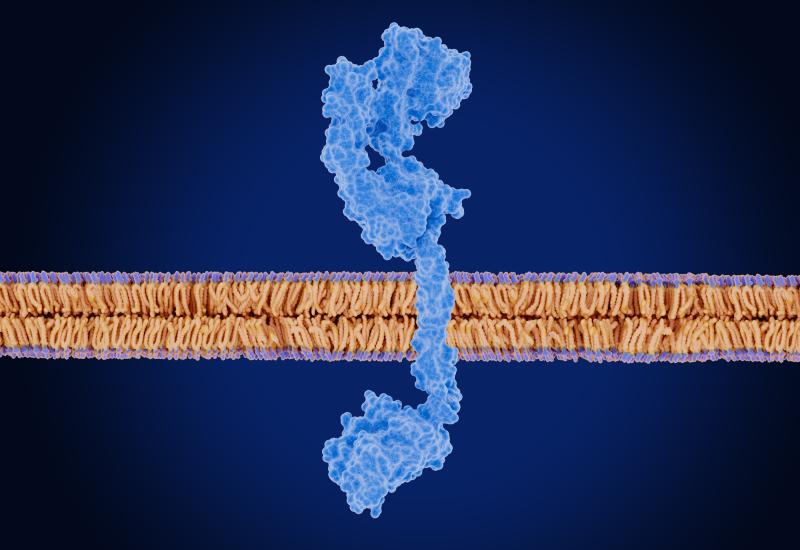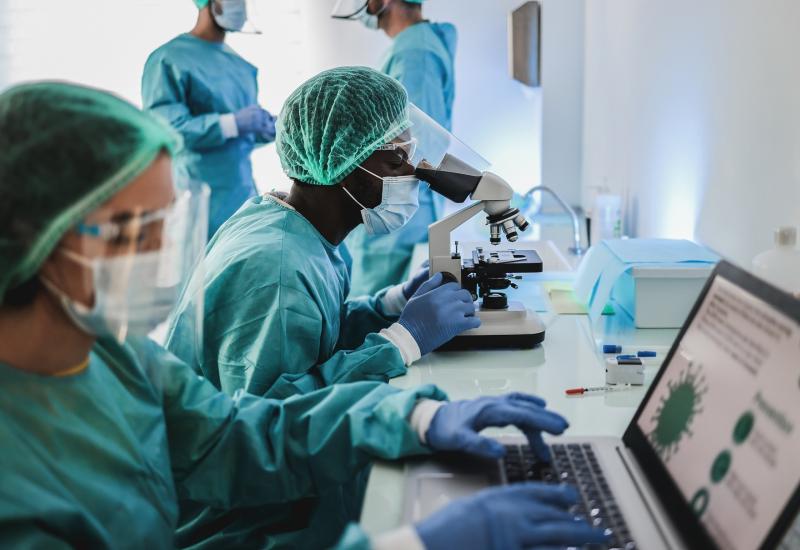
Conjugates dominate human trial entries
ADCs newly into human trials include Lilly's PTK7 and two bispecifics.
ADCs newly into human trials include Lilly's PTK7 and two bispecifics.

Anyone thinking that biopharma's interest in antibody-drug conjugates was waning need only look at planned first-in-human study initiations to be convinced otherwise. No fewer than six new ADCs have appeared in listings on the clinicaltrials.gov registry in recent weeks.
True, many of these will be studied in China, which some see as the place where innovation happens most quickly, and one, Avenzo's AVZO-1418, was originated by a Chinese company. But LY4175408 should be of particular interest, given that it targets PTK7, an increasingly popular target that has also seen buy-in from Genmab and Day One.
LY4175408 is also the result of deal-making, though it's not a Chinese invention. The polysaccharide linker technology on which it's based was developed by the private French company Mablink Bioscience, which Lilly acquired in 2023 for an estimated $250m; Mablink is also the originator of Lilly's anti-FRα ADC LY4170156.
The first-in-human study of LY4175408 starts this month, and makes this molecule the sixth anti-PTK7 ADC to enter clinical development. Two of the others are PRO1107, from Genmab's acquisition of ProfoundBio, and DAY301, which Day One licensed from China's MabCare in a June 2024 deal worth $55m up front.
More licensing
Another ADC licensing deal that's been in focus is between the private US biotech Avenzo and China's DualityBio, signed in January, worth $50m up front and covering Duality's EGFR x HER3-targeting ADC DB-1418, now coded AVZO-1418.
This project started its first phase 1 study last month, the new listings reveal. It is of special interest because it shares its dual targets with Systimmune's izalontamab brengitecan, for which Bristol Myers Squibb paid a meaty $800m up front, and which recently was claimed to have succeeded in a Chinese phase 3 study in post-chemo/PD-(L)1 nasopharyngeal carcinoma.
Recently disclosed first-in-human studies*
| Project | Mechanism | Company | Trial | Scheduled start |
|---|---|---|---|---|
| MHB118C | IGF-1R ADC | Minghui Pharmaceutical | Solid tumours | 31 Mar 2025 |
| SIM0686 | FGFR2b ADC | Jiangsu Simcere | Solid tumours | 20 May 2025 |
| AUBE00 | Undisclosed | Roche | Solid tumours | 5 Jun 2025 |
| AVZO-1418/ DB-1418 | HER3 x EGFR ADC | Avenzo (ex DualityBio) | Epithelial solid tumours | 19 Jun 2025 |
| SBO-154 | MUC1 ADC | Sun Pharma | Solid tumours | Jun 2025 |
| TQB6411 | EGFR x cMet ADC | Chia Tai | Solid tumours | Jul 2025 |
| LY4175408 | PTK7 ADC | Lilly | Solid tumours | Jul 2025 |
Note: *projects newly listed on the clinicaltrials.gov database between 22 Jun and 3 Jul 2025.
A related bispecific approach is being pursued by Chia Tai with TQB6411, an ADC that targets EGFR and cMet. These two antigens are most notably targeted by Johnson & Johnson's Rybrevant.
However, Rybrevant is a naked MAb, so Chia Tai might be hoping for improved efficacy with an ADC format. It shares this endeavour with Novatim and Hansoh, two companies that in May took their own anti-EGFR x cMet ADCs, KY-0301 and HS-20122 respectively, into human testing; one of the most closely watched ADCs with this mechanism of action is AstraZeneca's AZD9592.
Meanwhile, Jiangsu Simcere is aiming to replicate the naked MAb-to-ADC trick with SIM0686, a monospecific conjugate that went into phase 1 in May. This targets FGFR2b, as does the straight MAb bemarituzumab, which was the main reason behind Amgen's 2021 purchase for $1.9bn of Five Prime Therapeutics, and which last month scored in its phase 3 Fortitude-101 trial.
SIM0686's phase 1 study mandates the availability of tissue samples to determine patients' FGFR2b status, but unlike Fortitude-101 it doesn't appear to have set a minimum expression level as an entry criterion. Just two other anti-FGFR2b ADCs are in clinical testing, according to OncologyPipeline, and given the Fortitude-101 result safety will be closely watched.
1745













